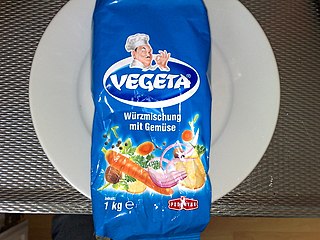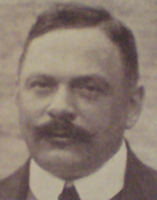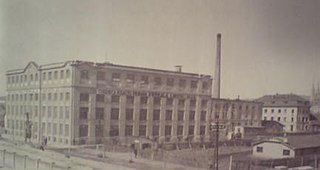Liqueurs and spirits
- Drenovac
- Kruškovac – made from pears
- Lozovača
- Maraschino [3]
- Pelinkovac
- Šljivovica
- Travarica
- Vlahovac – made from herbs
The following products could be described as hallmarks of Croatian trade. Croatiastreet awards its own quality seal (Croatian : Hrvatska kvaliteta) to the best Croatian products every year. Croatian Chamber of Economy confers the Izvorno hrvatsko (lit. 'Original Croatian' or 'Authentic Croatian') seal to Croatian products and services that undergo rigorous assessments to be recognised as a result of innovation, research and development by Croatian people and enterprises.
Croatian wines (vino, pl. vina in Croatian) have gained in quality, but are still largely unknown to the world wine market. It is a matter of the developing Croatian economy to make these wines more popular in the world, and it is up to Croatian wine producers to start large-scale production for international markets.
Apart from the great abundance of imported international beers such as Heineken, Tuborg, Gösser, and Stella Artois, homebrewn beers (Croatian : pivo) can also be found in Croatia. (Fans already know that the brewery in Split produces Bavarian Kaltenberg beer by licence of the original German brewery.)
Concerning water quality, Croatian water is greatly appreciated all over the world, and has a leading position in Europe with regard to its water resources. Due to a lack of established industries there has also been no major incidents of water pollution.







Slavoljub Eduard Penkala was a Slovak-Croatian engineer and inventor of Dutch-Polish descent.

Vegeta is a brand of savoury condiments of dehydrated vegetables, spices, and MSG, produced by Croatian food company Podravka. It is considered a staple of Eastern European cuisine.

Croatian cuisine is heterogeneous and is known as a cuisine of the regions, since every region of Croatia has its own distinct culinary tradition. Its roots date back to ancient times. The differences in the selection of foodstuffs and forms of cooking are most notable between those in mainland and those in coastal regions. Mainland cuisine is more characterized by the earlier Slavic and the more recent contacts with Hungarian and Turkish cuisine, using lard for cooking, and spices such as black pepper, paprika, and garlic. The coastal region bears the influences of Greek and Roman cuisine, as well as of the later Mediterranean cuisine, in particular Italian. Coastal cuisines use olive oil, herbs and spices such as rosemary, sage, bay leaf, oregano, marjoram, cinnamon, clove, nutmeg, and lemon and orange rind. Peasant cooking traditions are based on imaginative variations of several basic ingredients and cooking procedures, while bourgeois cuisine involves more complicated procedures and use of selected herbs and spices. Charcuterie is part of the Croatian culinary tradition in all regions. Food and recipes from other former Yugoslav countries are also popular in Croatia.

Podravka d.d. is a Croatian food company based in Koprivnica. Founded in 1934, today it is one of the largest food companies in Southeast Europe.
Agrokor was a conglomerate, largely centered in agribusiness, with headquarters in Zagreb, Croatia. Founded in 1976 as a flower grower, it became a joint stock company in 1989, with 100 percent ownership held by founder Ivica Todorić. It greatly expanded its operations in the following 25 years by acquiring several large companies in Croatia and Southeast Europe. The Agrokor group had an annual sales revenue of €6.465 billion in 2015, which made it the second-largest retail and eleventh-largest overall company in all of Southeast Europe. As of 31 December 2017, Agrokor employed around 50,900 people. On 1 April 2019, the assets of the demised Agrokor were consolidated within the newly founded Fortenova Group.

Kraš is a Croatian food company based in Zagreb, specializing in confectionery products. In 2012, Kraš was, after Podravka, the second largest Croatian exporter of food.
The subdivisions of Croatia on the first level are the 20 counties and one city-county.
Zdravko Zovko is a retired Croatian handball player.

KONČAR – Elektroindustrija d.d. is a Croatian electrical, transport and energy company based in the Trešnjevka neighborhood of Zagreb, Croatia.
Jamnica plus LLC is a Croatian limited liability company which produces carbonated mineral water, as well as other bottled waters and soft drinks. It was founded on 18 October 1828, and operates as a part of the Beverages Group, an organizational division within the Fortenova Group.
Events from the year 1911 in Croatia.

Atlantic Grupa d.d. is a Croatian multinational company whose business operations include the production, development, sales and distribution of consumer goods with simultaneous market presence in over 40 countries around the world.

Rukometni Klub Lokomotiva Zagreb is a Croatian professional women's handball club from Zagreb.
TOZ Penkala is a Croatian manufacturing company of stationery products, based in Zagreb. It is a leading manufacturer of school and office accessories in Central and Southeast Europe. The company's operations were restarted in 2016, after a brief period of inactivity. The end of the company was reported in 2024.

Beer is a popular beverage in Croatia. In 2010, Croatia was the 14th country in the world by beer consumption per capita. Approximately one half of the adult population are beer consumers.

Edmund Moster was a Croatian Jewish entrepreneur, industrialist, inventor and co-founder of the "Penkala-Moster Company" in Zagreb.

Vindija is Croatian food company based in Varaždin. Vindija is mainly known for its dairy products and beverages.

Marija Pejčinović Burić is a Croatian politician of the centre-right Croatian Democratic Union party who served as Minister of Foreign and European Affairs and First Deputy Prime Minister of Croatia from 2017 to 2019. She was the third woman to hold the post of foreign minister, following Kolinda Grabar-Kitarović and Vesna Pusić. Pejčinović Burić previously served as a Member of Parliament during its Sixth Assembly (2008–2011), representing the 6th electoral district.

Penkala-Edmund Moster & Co., later as Penkala tvornica d. d., was a stationery manufacturing company that was based in Zagreb, Kingdom of Croatia-Slavonia within Austria-Hungary. It was formally founded in 1911 by the industrialist Edmund Moster and inventor Slavoljub Penkala, although a smaller workshop already existed since 1907. It manufactured mechanical pencils, fountain pens and other writing implements, including ink, much of it based on Penkala's patents. At one point, it was one of the largest stationery producers in the world, exporting its products to over 70 different countries. In addition to Zagreb, it also had factories in Berlin, Germany, where it employed around 800 people, and Lepoglava. The company ceased production in 1937, and was liquidated in 1939.
{{cite web}}: CS1 maint: numeric names: authors list (link){{cite web}}: CS1 maint: archived copy as title (link){{cite web}}: CS1 maint: bot: original URL status unknown (link){{cite web}}: CS1 maint: bot: original URL status unknown (link)